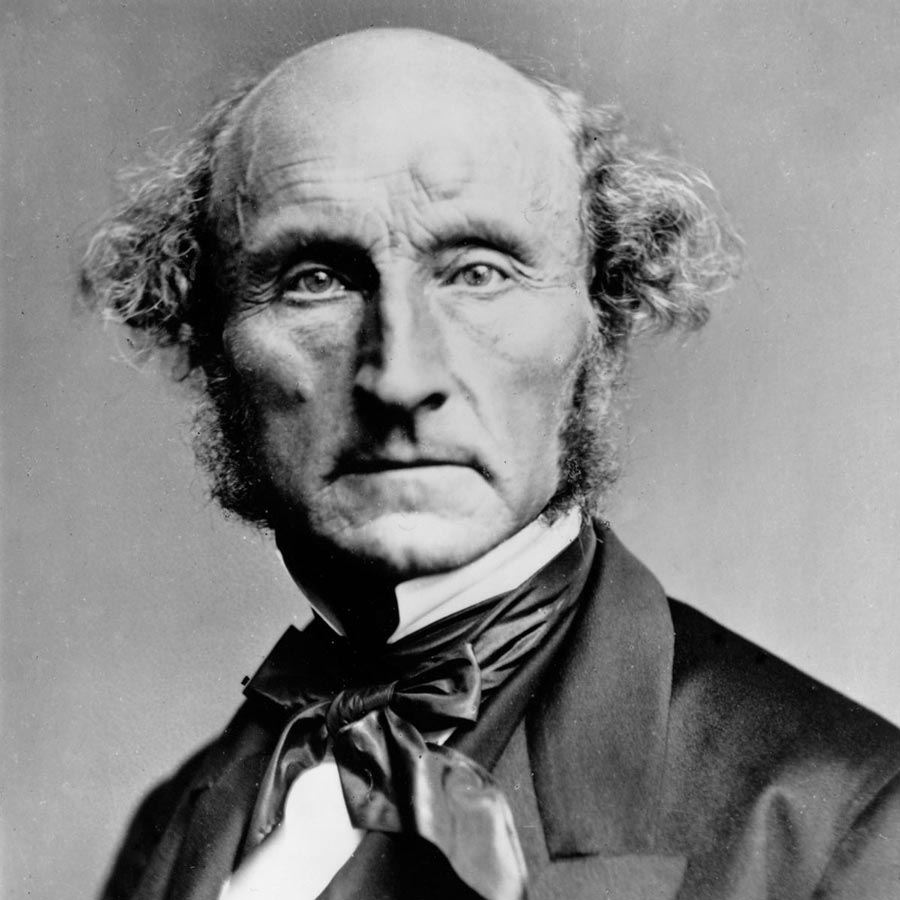The views expressed in our content reflect individual perspectives and do not represent the authoritative views of the Baha'i Faith.
If you had an extra four hours in each of your days, what would you do with them?
Benjamin Franklin once predicted that in the future we would all work no more than four hours a day. Beyond those few hours of work, he said, life would be devoted to “leisure and pleasure.”

John Stuart Mill
The influential British philosopher John Stuart Mill said essentially the same thing—reasoning that the best use of more wealth was more leisure, and that technology should be used to shorten the work week as far as possible. “There would be as much scope as ever for all kinds of mental culture, and moral and social progress,” he wrote, “as much room for improving the Art of Living.”
Today, though, we seem to have gone in the opposite direction. Many people actually tend to treat excessive work and pressure as status symbols. When was the last time you heard someone complain about being overworked? We hear it constantly, but kvetching about too much work often seems like a lame attempt to make life appear more important and interesting. On the other hand, we tend to pity those with not enough work and “too much free time” on their hands. Isn’t the whole point of the progress of contemporary culture to minimize our labor and maximize our personal growth? How did we get this so wrong?
Modern society has definitely put work on a pedestal. Don’t believe it? Just compare the words we use to describe the differences: “industrious,” “hard-working,” “productive,” “diligent,” and “dedicated;” versus “lazy,” “indolent,” “idle,” “day-dreamer,” and “un-motivated.” We’re constantly measured by our professions, and judged by their relative, perceived social importance. We define ourselves by our titles and our jobs, rather than by our mental or spiritual realities. Instead of who we are, we privilege what we are.
So let’s speculate: if the future did arrive tomorrow, and you suddenly only had to work four hours a day for the same pay, what would you do with your spare time?
Would you become an artist, and paint, write, make music, dance, draw or sculpt? Would you go to school to learn more, in a field you’ve always had an interest in but never had the luxury to study? Would you spend more creative play time with your children? Would you become a gourmet chef? Would you read, cogitate and contemplate? Would you take up a new sport, get more exercise, go for long hikes, spend more time outdoors? Would you build things? Would you volunteer to help with a local charity? Would you simply breathe, relax and meditate? Or would you devote your extra time to achieving something higher, to develop your inner spiritual capacity?
All of those things sound good, don’t they?
Of course, everyone needs to work hard in life to meet our needs, achieve our goals, support our families and help others—but the Baha’i teachings also remind us to devote our lives to higher realities, to more sublime aims than the merely physical ones:
O Son of Spirit! Burst thy cage asunder, and even as the phoenix of love soar into the firmament of holiness. Renounce thyself and, filled with the spirit of mercy, abide in the realm of celestial sanctity. – Baha’u’llah, The Hidden Words, p. 35.
Regarding the statement in The Hidden Words, that man must renounce his own self, the meaning is that he must renounce his inordinate desires, his selfish purposes and the promptings of his human self, and seek out the holy breathings of the spirit, and follow the yearnings of his higher self, and immerse himself in the sea of sacrifice, with his heart fixed upon the beauty of the All-Glorious. – Abdu’l-Baha, Selections from the Writings of Abdu’l-Baha, p. 206.
If we had the time to burst our cages asunder, as Baha’u’llah suggests, then we truly could “seek out the breathings of the spirit,” and follow the yearnings of our higher selves.
You May Also Like
Comments

















Are you SERIOUS?? The average work week has been CONSISTENTLY going down and down and down for years and shows no sign of stopping or slowing.
The forty hour work week is ALREADY revolutionary in the amount of free time that has been afforded to us as a species, not to mention all the free time added now that most household chores have been automated!! We live in a time of AMAZING freedom in this regard!!
But, I suppose, some people can't see how far we've come and will ...complain that they want EVEN MORE. 'Tis human nature.
I still ...say, that even though wise men have been talking about the shorter work day for some time, it will be awhile before this actually happens. So what can we do today to raise hope and inspire the hearts and souls of people?
Perhaps point out how far we've come and what a modern luxury a forty-hour work week really is comparatively??
I think we're too attached to thinking that the present state of things is the baseline, and we thus imagine what we think should be BETTER than we do appreciating how far we've come and what luxury we are blessed with.